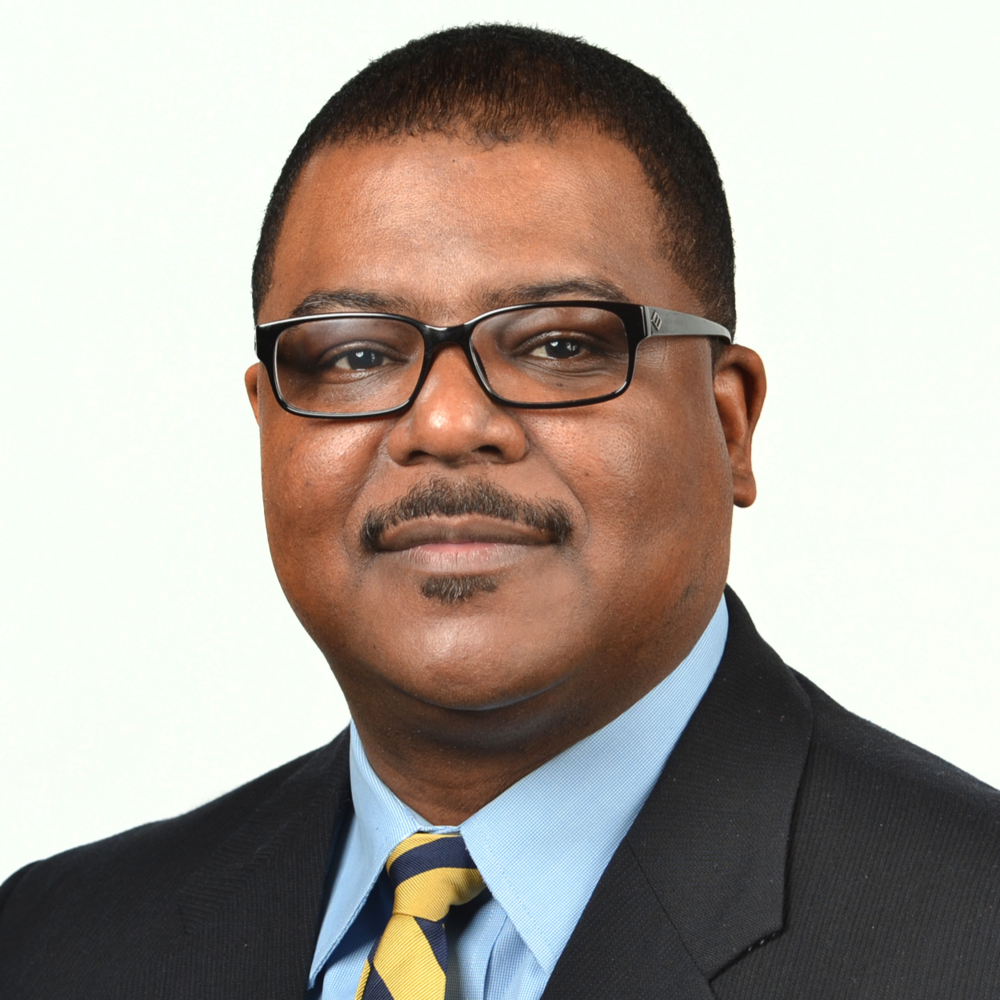
Section Branding
Header Content
Georgia Today: Atlanta sues opioid producers; Korean War vet laid to rest; empathy over racism
Primary Content
LISTEN: On the Thursday, March 23 edition of Georgia Today: Atlanta is suing opioid manufacturers; a Korean War vet from Georgia will finally be laid to rest; and a new film highlights the power of empathy over racism.

Peter Biello: Welcome to the Georgia Today podcast from GPB News. Today is Thursday, March 23. I'm Peter Biello. On today's episode: The city of Atlanta is suing opioid manufacturers; the remains of a Korean War vet from Georgia will finally be laid to rest; and a new film highlights the power of empathy over racism. These stories and more are coming up on this edition of Georgia Today.
Story 1
Peter Biello: A federal lawsuit filed this week by the city of Atlanta and six metro area counties aimed to recover damages from opioid manufacturers. The suit alleges drug companies put profit ahead of public health. GPB's Ellen Eldridge reports.
Ellen Eldridge: The local governments say they had no choice but to pay employees' insurance claims for unnecessary opioid prescriptions. More than $636 million is already heading to Georgia, following the largest-ever opioid-related settlement with Purdue Pharma. Kevin Tanner is the commissioner of the Georgia Department of Behavioral Health and Developmental Disabilities. He says the state will do everything in its power to keep the opioid crisis from impacting future generations.
Kevin Tanner: When the last dollar is spent we can look you in the eye and say, without question, Georgia got the highest return on its investment possible.
Ellen Eldridge: Dozens of similar lawsuits are being filed against the pharmaceutical industry for its role in spreading the addictive and potent painkillers. For GPB News, I'm Ellen Eldridge.

Story 2
Peter Biello: State environmental officials say they've received more than 100,000 comments about the permit application by an Alabama company to mine for titanium near the Okefenokee swamp. A spokesperson for the Environmental Protection Division says they have no way to know if that's a record. Rena Ann Peck of Georgia River Network says joint comments from the U.S. Fish and Wildlife Service and the National Park Service are especially important.
Rena Ann Peck: I think it's just what EPD has been waiting for it. They want the federal agencies to weigh in with their science. So finally we have it and EPD has what they need to protect our natural resources.
Peter Biello: The agencies challenged the plan's potential negative impacts to wildlife and ecosystems. Officials for the company, Twin Pines Minerals, say they can mine the area safely.
Story 3
Peter Biello: Lawmakers held a final hearing yesterday for a House bill proposing sweeping mental health legislation. GPB's Sofi Gratas explains how the legislation may or may not move forward with just three working days left in the session.
Sofi Gratas: Lawmakers in the Senate Health and Human Services Committee did not vote on House Bill 520 Wednesday, delaying further action until today. But the bill moves on without its supportive housing element and without a definition for, quote, "serious mental illness." Instead, changes presented by Chairman Ben Watson at the hearing would give agencies until December to propose a definition to the General Assembly, as explained by Sen. Ed Setzler.
Ed Setzler: We will add the definition if we need to, but the lawmakers will make the law. We're not going to delegate that.
Sofi Gratas: The Senate is likely at an impasse with the House over another bill that would have overhauled requirements for the construction of new rural hospitals. That bill will likely not see a floor vote after failing to make it through committee on Tuesday. For GPB News, I'm Sofi Gratas.

Story 4
Peter Biello: The Atlanta Journal-Constitution has chosen a Black editor to lead its newsroom for the first time in its 155-year history. The AJC named Leroy Chapman Jr to its editor-in-chief position today. Chapman has worked in journalism for nearly three decades and has been with the AJC for a dozen years, most recently as managing editor. He'll succeed Kevin Riley, who is retiring.

Story 5
Peter Biello: The U.S. Army said Tuesday that it will bury the remains of a Georgia soldier killed during the Korean War in Arlington National Cemetery. Cpl. Thommie Hanks lived in Columbus and was reported missing in action in 1950 and later declared nonrecoverable. His remains were turned over by North Korea and, last year, were identified using DNA. His interment will be in April. More than 7,000 Americans remain unaccounted for from the Korean War.
Story 6
Peter Biello: Some environmentalists are preparing to sue the government on behalf of a species of tortoise that lives here in Georgia. GPB's Devon Zwald has the story.
Devon Zwald: Environmental groups say gopher tortoises should be placed on the endangered species list in four Southern states, including Georgia. The Center for Biological Diversity and Nokuse Education filed a notice of intent to sue the U.S. Fish and Wildlife Service over its decision last year not to list the gopher tortoise as endangered or threatened in Florida, Georgia, South Carolina and eastern Alabama. The groups said yesterday that the animals are imperiled by loss of habitat largely caused by human development. The center noted there are some state-level protections for the burrowing tortoises, but those generally do not protect their habitat. For GPB News, I'm Devon Zwald.

Story 7
Peter Biello: Delta Air Lines is launching a flight academy to train a new generation of pilots. The Atlanta-based airline said Tuesday that it will open its Propel Flight Academy in partnership with Florida-based Skybourne Airline Academy in June. The news comes as airlines prepare for growth and mandatory retirements. A Delta spokesperson says the airline expects to hire 2000 pilots this year.
Story 8
Peter Biello: A new documentary film set in Georgia explores how racial hatred can be unlearned through empathy. Refuge tells the story of Heval Kelli, a cardiologist and Syrian Kurd who fled oppression in his country, and Chris Buckley, a man from northwest Georgia who joined and then left the Ku Klux Klan. Filmmakers Erin Bernhardt and Din Blankenship join me now to talk about the film.
Erin Bernhardt: Thanks for having me.
Din Blankenship:Thanks for having us.
Peter Biello: So this film alternates between the perspectives of these two men, Heval Kelli and Chris Buckley. I'd like you to tell us about each of them, starting first with Chris Buckley, the white man from Northwest Georgia. Let's start with you, Din. Who was he and what was his life like?
Din Blankenship: Chris Buckley was living in North Georgia in a small town called Lafayette, and he's a guy that had experienced a lot of trauma throughout his life, throughout his childhood, and was living with some pretty severe PTSD from his time in the military. And so when we met Chris, he had just left the KKK. He was the No. 2 guy in the KKK in the state of Georgia. And a lot of his hatred was specifically targeted at Muslims. Some of that was unexamined trauma from 9/11. And a lot of that was from trauma from his experience in the military. And so Chris is also a recovering meth addict. And so when we met him, he was sober. How long was he sober at that time, Erin? Six months?
Erin Bernhardt: Not long.
Din Blankenship: Not long. So recovering meth addict who had just left the KKK is — was Chris Buckley when we met him.
Peter Biello: A man with a very difficult life. And Heval Kelli also had some challenges in his life. Can you tell us about him?
Erin Bernhardt: Actually, his life started out really beautiful and wonderful. He is a Syrian Kurd, a Muslim Kurd from Syria, and he would call it a really privileged childhood that he had. His dad was an attorney. But what happened to Heval was when the Assad regime was attacking — and still, to this day, a lot of people are attacking the Kurdish people — his dad was an attorney that was supporting Kurds and they were openly Kurdish and persecuted for that. And so when he was in elementary school, he remembers he was sitting in the living room with his mom and dad and his brother and the Assad regime stormed his living room and came and kidnapped his dad and took him. That was a really, obviously, a traumatic experience and that made them be forced to flee Syria. And so that led them to Germany, where they became refugees in Germany.
Peter Biello: When he was in Germany, that's when he was in refugee camps, right?
Erin Bernhardt: It was sort of a refugee camp. Yeah, it was like a refugee apartment. Germany was going to try to send them back to Syria, which would have been a death sentence for his dad. And luckily, they found asylum in the United States as refugees.
Din Blankenship: When you meet Heval in our film, he's just kind of recognizing, "Wait a minute, America feels really different right now in 2017-18. It doesn't feel like the welcoming place that welcomed me."
Peter Biello: At one point in the film, Heval is really troubled by the racism he sees in America, not just directed at Muslims, but at people like Mexicans, for example. And then he has this to say. And I think this really kicks off the arc of the film. This is what he said:
Heval Kelli: "I have to get out of my comfort zone, go to the other side, understand why they're doing it, because this division and hate's not going to go away."
Peter Biello: At this point in the film, it seems as though Heval is the stand-in for the viewer. We want to know, along with Heval, why Chris is the way he is and whether this understanding can help Heval and help Chris. Were those questions on your mind as well, whether or not this understanding can be helpful? We'll start with you, Erin.
Erin Bernhardt: Yeah, that was very much on our mind. Din and I made this film in direct response to what happened with the riots and murder in Charlottesville in August of 2017 with the Unite the Right rallies. And so we really were looking to answer that question: Why are people so full of hate against "the other" and what can we do to address that?
Peter Biello: What about you, Din?
Din Blankenship: You know, I love — I feel like that's such a generous view of America right now that we have a curiosity about each other, because I think, you know, if I'm honest, both about myself and I feel like what we've been seeing so much in our country in the past, I don't know, five, six, seven years, is a lack of curiosity, of like, "Why do people hold the positions that they hold?" You know? And, "Is there something human beneath the anger and the hostility that I'm observing?" And so, you know, I hope that more of us can walk out of this film — and I know I certainly have in terms of our relationship with Chris and Heval — but with a sense of curiosity and with a sense of compassion and empathy towards people I may not understand, but who I might have a lot of opinions about that aren't based on actual — an actual relationship. And so I hope that we can all take that posture of curiosity that we see in Heval into the world after watching this film.
Peter Biello: I want to play another clip from this film. After Heval and Chris meet, and they spend some time together, they share what they learned from the experience, separately. First Heval speaks then Chris. After spending a day with Chris, Heval says it's not fair that Chris has to live in poverty.
Heval Kelli: Chris is like a reflection of the forgotten America. They are living in a camp that doesn't have no borders called poverty. When people watch and immigrants are successful, now I understand the other side why they're getting angry. Because if they live like this and they see their own people are still hungry and struggling, they're like, "Why are we not getting the help?"
Chris Buckley: I look at him and it's like, look at what he did with his opportunity, you know, and look at what I did with mine, you know? I squandered it. It's some s*** I did it myself. Like, I don't blame anybody. I blame myself.
Peter Biello: What do you make of their realizations at the end there? Maybe we'll start with you, Din.
Din Blankenship: You know, I think something that was so powerful for us in those moments was seeing how it was through a personal relationship with a person that understanding and empathy were possible. You know, before Chris and Heval met, they're thinking about somebody like that person: You know, a Muslim refugee who's become really successful or a white man living in rural poverty, were not based on evidence, were not based on a relationship. And so it was through a relationship with one another that they were able to walk away and have a better and real tangible understanding of each other. But the fact that they were able to first and foremost approach one another as individuals with joys and hopes and fears and pain and families — you know, those are the things that are going to enable healing in our country. And it was really amazing to just witness that unfolding in front of us.
Erin Bernhardt: Yeah, I mean, I totally agree. I think one thing that Heval says in the film is that it's hard to hate something you know, and that really embodies all of this. Peter, what did what did you learn? What is your takeaway?
Peter Biello: When you think about how hard it is to make friends in general and then you see people cross enormous cultural divides like that, it gives you a little bit of hope that maybe our species isn't doomed. And that's something I'd like to see personally that that, you know, we're going to make it as a species and our capacity to love each other is a sign of that.
Din Blankenship: Oh, we are encouraged by that. Thank you. And we feel the same. You know, we're still navigating this incredibly fractured world, too. And I feel like even when I feel myself getting kind of pulled into it and feeling really frustrated by the state of things, I'm constantly going back to like just remembering what we witnessed in Chris and Heval and feeling hope for what is possible and feeling like in what way is their journey replicable for me. And so we hope everyone else can kind of take this similar a similar approach as they walk out of the film.
Peter Biello: Well, I want to thank you both for chatting with me about this film and for making it.
Din Blankenship: Thank you. We appreciate that. And thank you for having us. This was a treat for us.
Peter Biello: Erin Bernhardt and Din Blankenship are the directors of Refuge, which will be in theaters in Atlanta for a week starting on Friday. It's going to be on demand as well. You can find a link with more information at GPB.org.
Story 9
Peter Biello: In sports: In the NBA, the Atlanta Hawks lost to the Minnesota Timberwolves last night in a squeaker. Final score: 125 to 124. Trae Young scored 29 points and posted his 100th straight game with at least five assists, which is the longest active streak in the NBA and the ninth longest in history. Jalen Johnson missed his fourth game in a row with left hamstring tightness and a groin strain. And the Atlanta Braves have announced that Rico Carty and Fred Tenny will be inducted into the Braves Hall of Fame in a pregame ceremony on August 19 before the Braves-Giants game. Carty played with the Braves from 1963 to 1972 and finished his career with a .317 batting average, tied for sixth in franchise history. He was chosen as a 1970 All-Star. That season, he hit .366. And Fred Tenney played 15 seasons with the Boston Braves from 1894 to 1907. Tony also served as both a player and a manager from 1905 to 1907 and in 1911. And they will be in good company in the Braves Hall of Fame, along with Hank Aaron, Greg Maddux, David Justice, Andrew Jones and Dale Murphy, among others.
That's all we've got for today's edition of Georgia Today. We really do appreciate you tuning in. Join us tomorrow as well as we're going to be bringing you the story of a man who lost his very special hat. It was an Atlanta Braves hat gifted to him by his dad. His dad died a few years ago. And after he died, the hat took on some special meaning. So when he lost it, it was pretty upsetting. But his wife and the Atlanta Braves stepped in to help. We're going to have that story tomorrow on Georgia Today, in addition to all the top stories from the Peach State, so I hope you'll tune in. The best way to remember to tune in, of course, is to subscribe to this podcast. Take a moment. Do it now. We'll be there for you in your podcast feed tomorrow afternoon. If you like this podcast, leave a review so other folks can find it. And if you've got some feedback, send it our way. The email address is GeorgiaToday@GPB.org. I'm Peter Biello. Thank you again for listening. We'll see you tomorrow.
___
GPB's Georgia Today newsletter hits your inbox on Tuesdays, Wednesdays and Thursdays with top stories from around the state featuring news, politics and more. Subscribe here.



